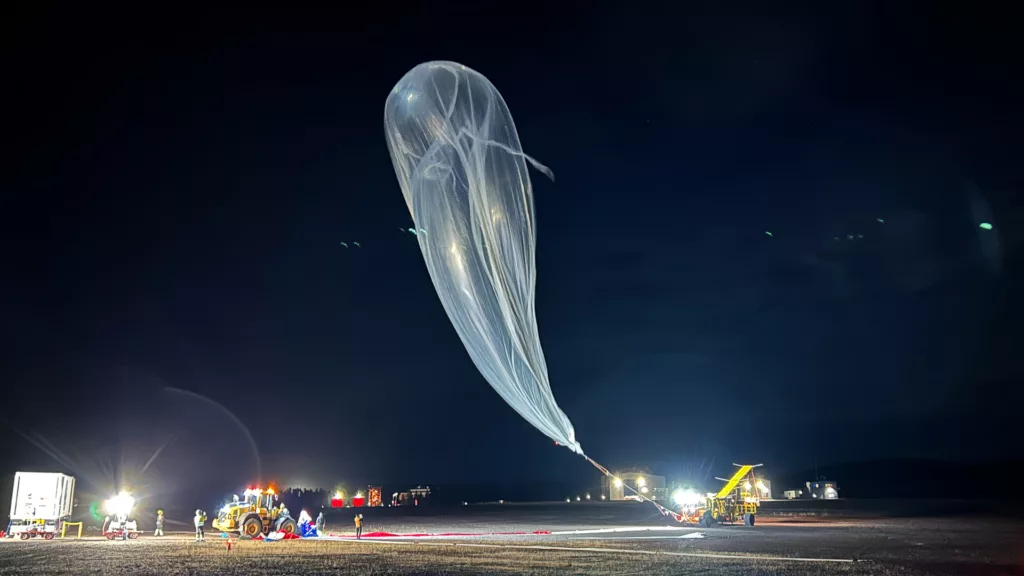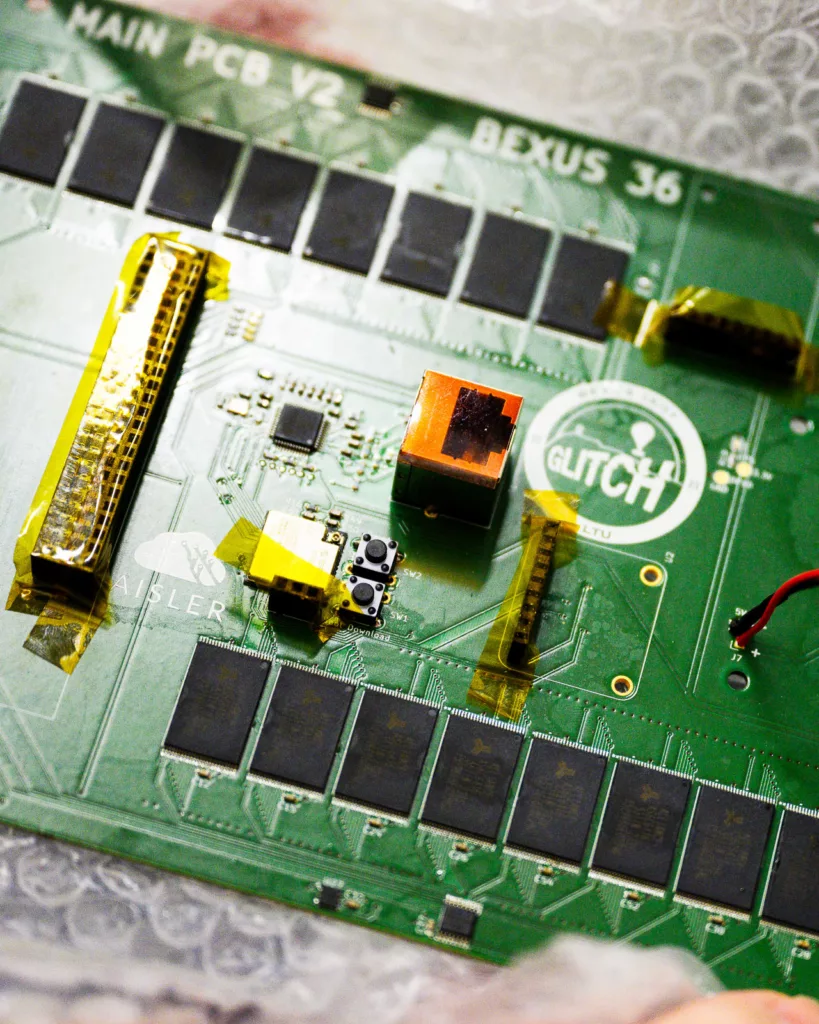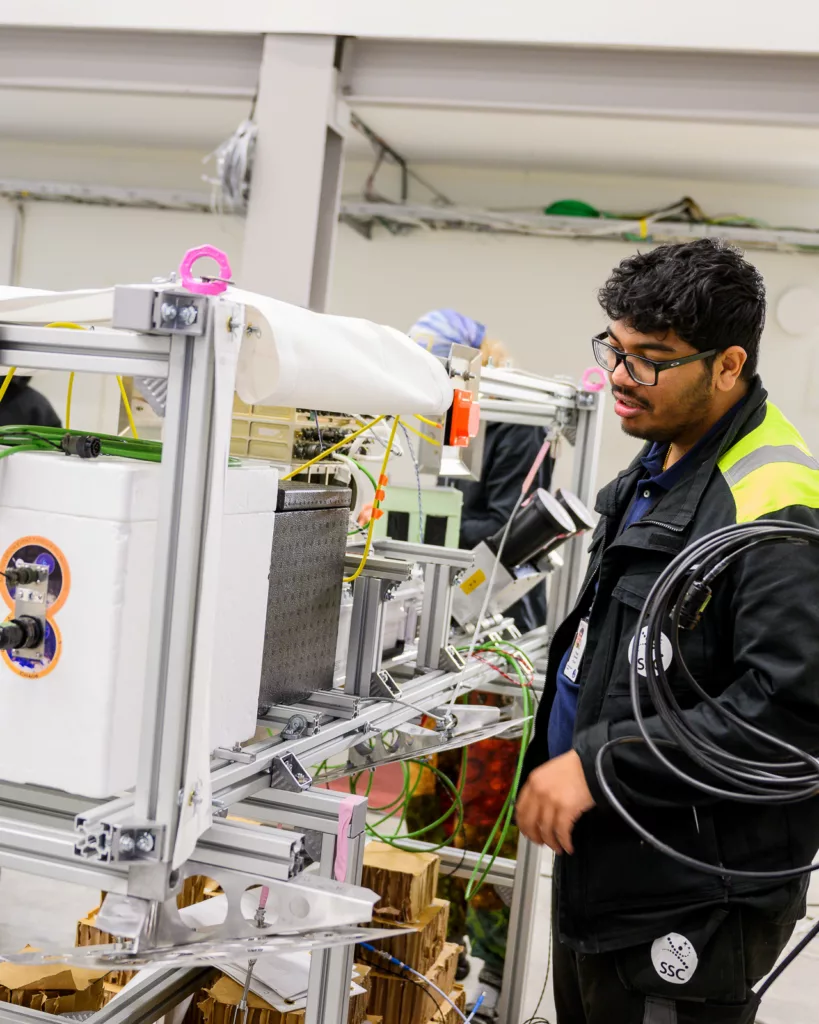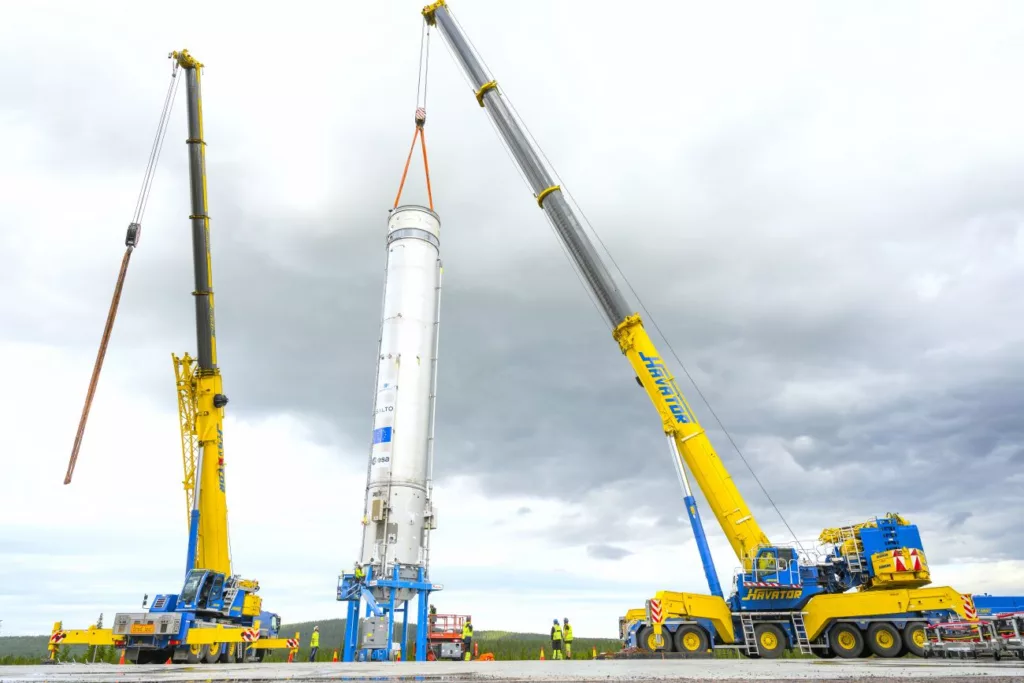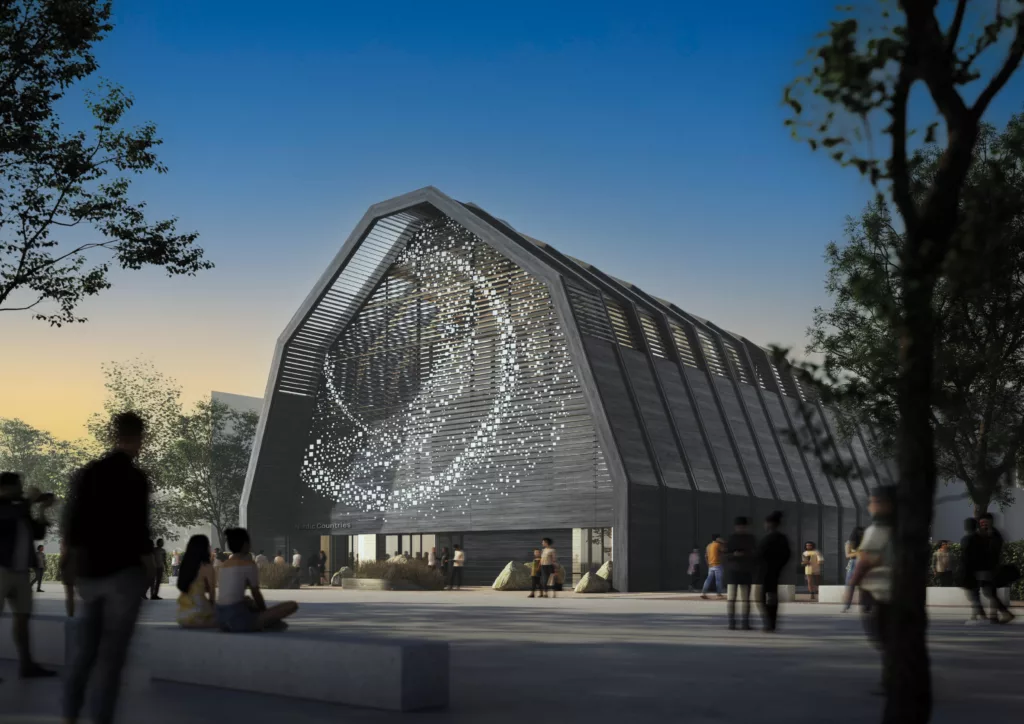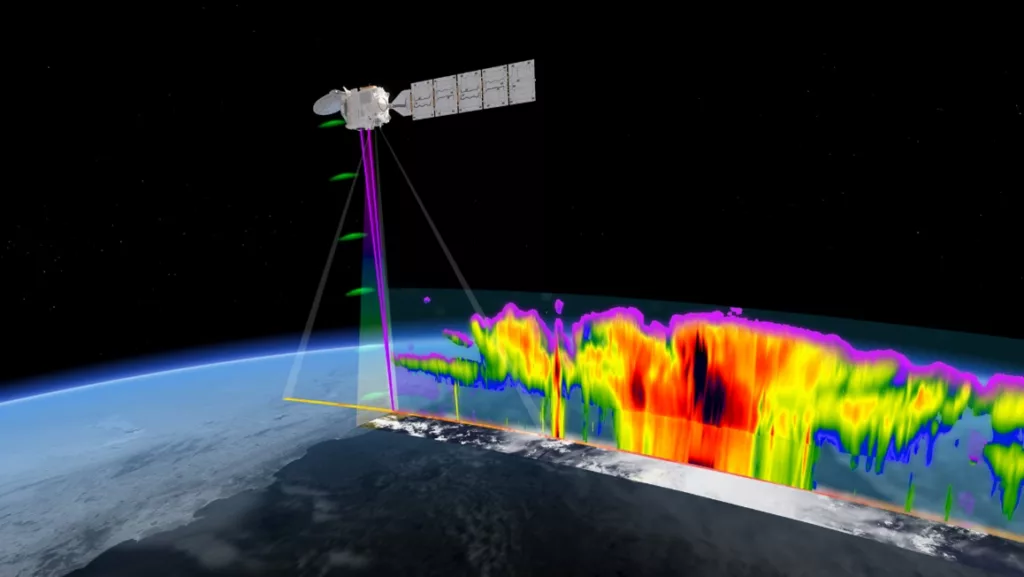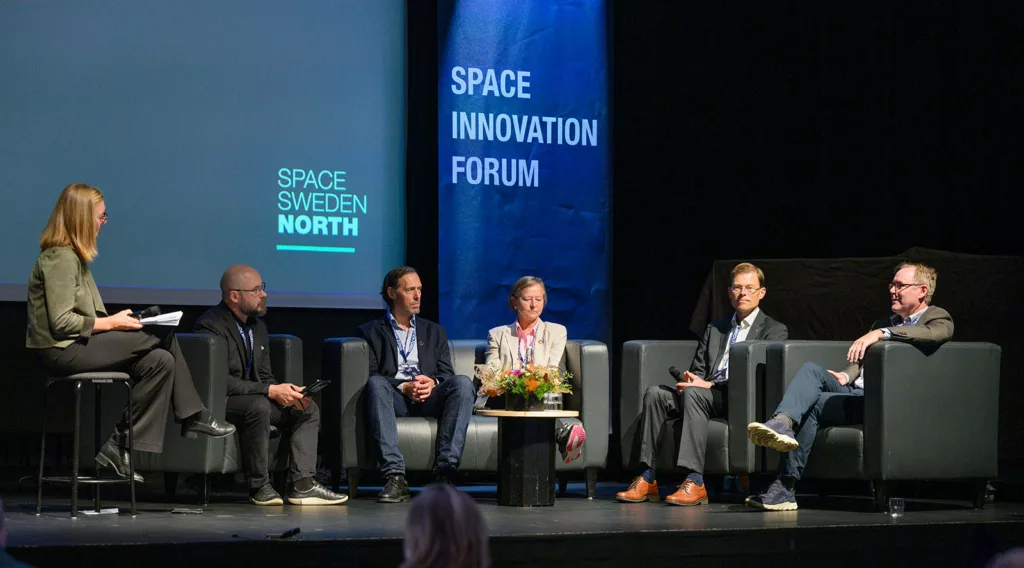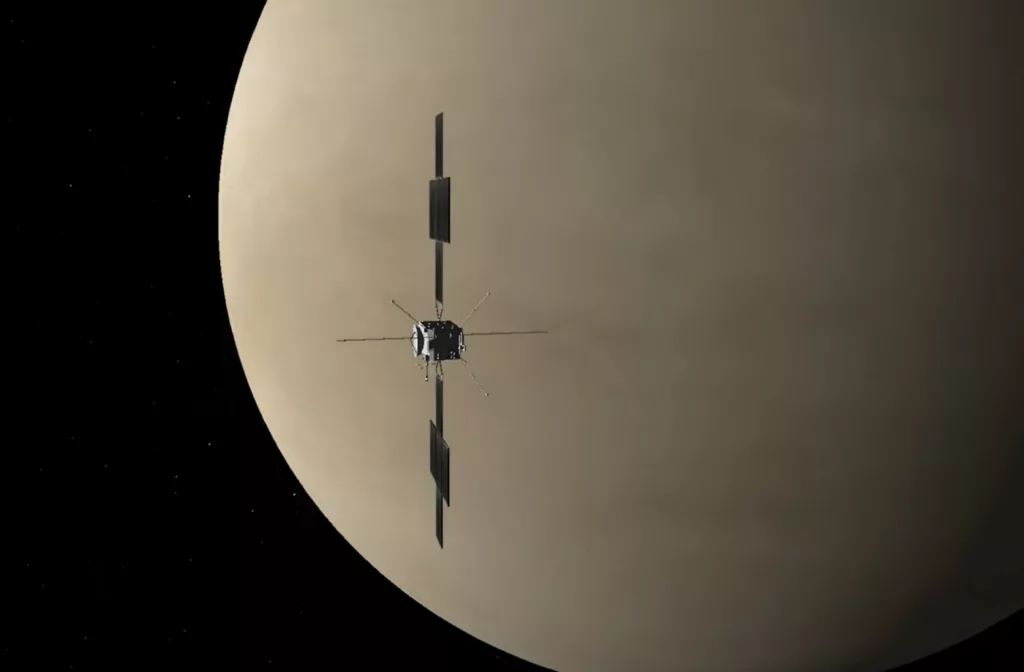Balloon Missions, News
Space students from across Europe and Canada are once again taking their research to new heights through the BEXUS balloon campaign at Esrange Space Center. Running from 3–12 October, the campaign includes two scheduled balloon launches that will carry student experiments to 25 kilometers altitude, into the stratosphere.
Top photo: Mrunmayee Sonna, SSC
During the flight, students get the opportunity to collect unique data and test their projects in real life, under challenging environmental conditions. For many participants this also marks the first step toward a future career in the space industry.
Ten teams of students are set to launch their experiments, having spent over a year of preparations and rigorous tests. With only a few hours remaining, the atmosphere is understandably a bit tense for the students.
Team GLITCH consists of 18 students from the Space Engineering program at Luleå University of Technology (LTU), and they aim to study cosmic radiation and how it can affect electronics. Filippa Ekholm and Ebba Fanemo are two of the students representing this project.
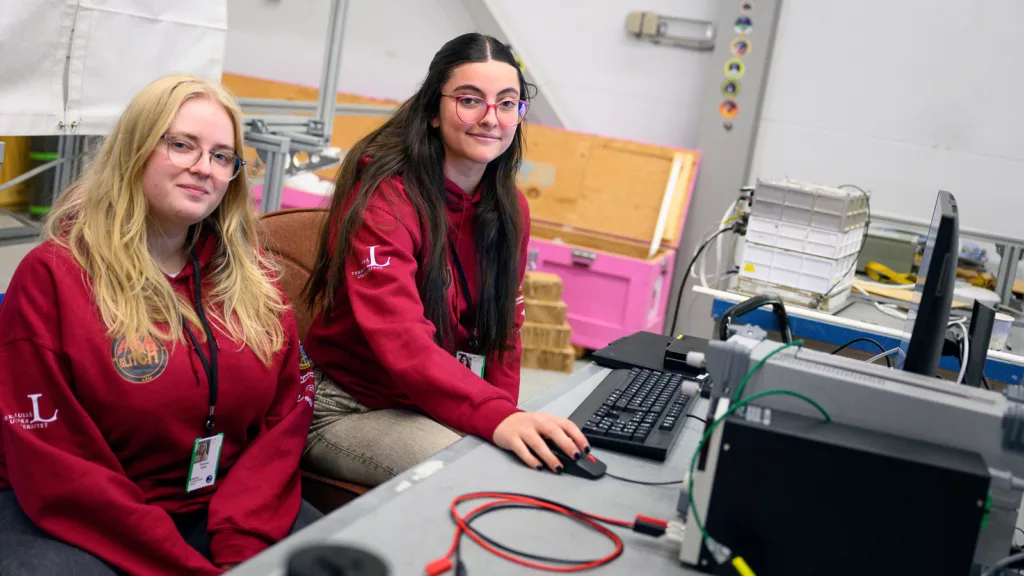
“We use memory cards coded with a special pattern that we want to examine after the flight to see if anything has changed. In practice, whether a bit has changed from a zero to a one or from a one to a zero—a so-called bit flip,” explains Filippa Ekholm.
They are hoping that the data from the experiment will show to what extent electronics are affected by cosmic radiation. A greater understanding in this area could help accelerate the development of technology for future flights and improve our knowledge of how stored data on chips is influenced by radiation.
“It’s particularly interesting now, as we’re at solar maximum and experiencing stronger solar storms,” says Ebba Fanemo.
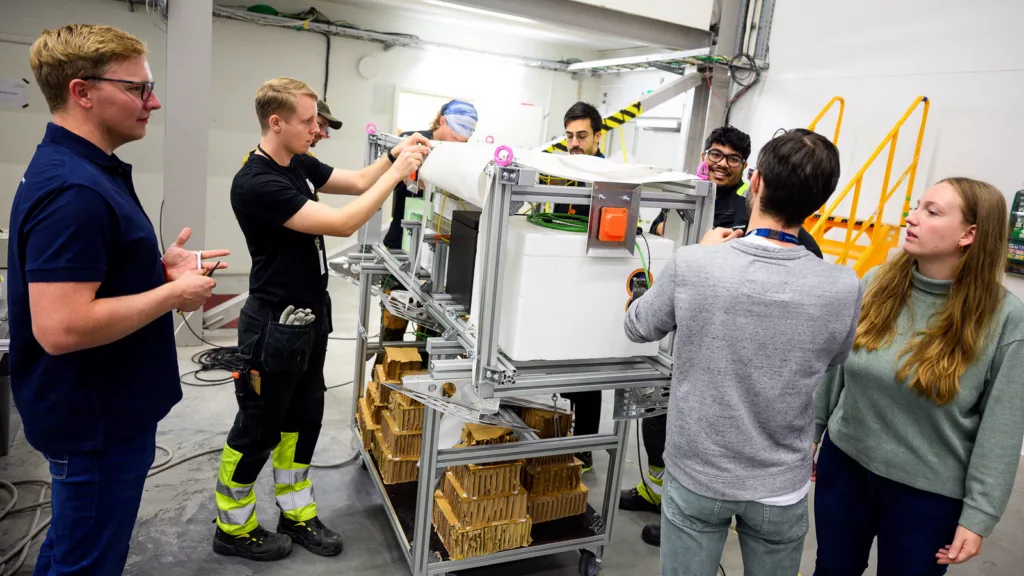
“The REXUS/BEXUS campaigns are extremely challenging as we are aiming to launch two vehicles in only six launch days. This requires thorough preparation of the teams before the launch window opens, and coordination of all launch staff to utilize any launch opportunity we may have. We’re looking forward to the first launch attempt on Wednesday of BEXUS 37 and to enable the teams to perform their research,” says Esmée Menting, SSC program manager for REXUS/BEXUS.
What is the REXUS/BEXUS Program?
REXUS/BEXUS (Rocket and Balloon Experiments for University Students) is a Swedish-German space program where university and college students have the chance to conduct their own experiments aboard sounding rockets or stratospheric balloons. The program is a cooperation between the Swedish National Space Agency, DLR (Germany), ESA, and other European partners. Applications are open to students from participating countries, and the projects cover everything from physics and biology to new technologies for future space missions.
